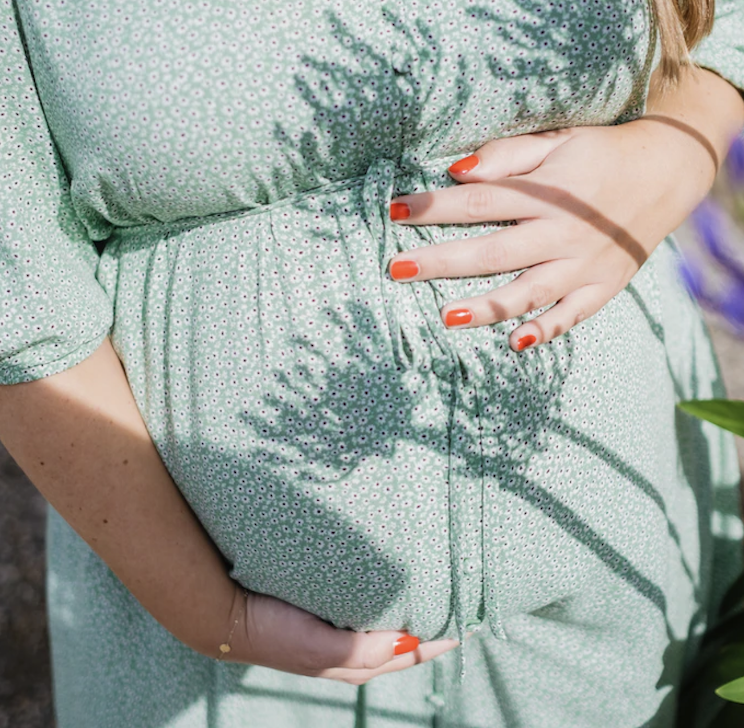Dehydration during pregnancy is a common concern for many expecting mothers. With the increased fluid needs that accompany this vital stage, managing hydration becomes crucial. Electrolyte beverages often emerge as a popular solution, touted for their ability to replenish lost minerals and fluids swiftly. Yet, the question remains: Is it safe to drink electrolyte beverages during pregnancy?
Pregnancy hydration requires careful consideration of both benefits and potential risks. While these drinks can offer quick relief from dehydration by restoring essential minerals, they may also contain high levels of sugar or artificial additives. Understanding the role of electrolytes—such as sodium, potassium, calcium, and magnesium—in supporting bodily functions is essential.
Key takeaway: Staying hydrated is vital for the health of both mother and fetus. However, it's important to have a clear understanding of how electrolyte drinks fit into your overall hydration strategy. Balancing fluid intake with nutritional needs is critical in dehydration management during pregnancy. It’s always advisable to consult healthcare professionals when considering significant dietary changes, especially when incorporating electrolyte supplements into your routine.
Understanding Hydration Needs During Pregnancy
Fluid Intake Recommendations
During pregnancy, the body's demand for fluids increases to support both maternal and fetal health. The recommended daily fluid intake for pregnant women is typically higher compared to non-pregnant individuals. Generally, it is suggested that pregnant women consume about 8-12 cups of fluids per day. This increase aids in maintaining amniotic fluid levels, supports increased blood volume, and helps with digestion and nutrient transport.
Factors Influencing Hydration Requirements
Several factors can influence how much fluid you need during pregnancy:
Environmental Conditions: Hot weather can lead to increased sweating, which in turn raises your body's need for fluids. It's crucial to be mindful of temperature changes and adjust your fluid intake accordingly.
Physical Activity: Engaging in regular exercise or any form of physical activity during pregnancy enhances the necessity for additional hydration. Physical exertion leads to fluid loss through sweat, making it important to replenish these losses promptly.
Physiological Changes: Pregnancy itself brings about changes such as increased urination due to hormonal shifts and pressure on the bladder from the growing uterus, further impacting hydration requirements.
Consequences of Inadequate Hydration
Insufficient hydration can have negative effects on both maternal and fetal health:
For Maternal Health: Insufficient hydration can lead to symptoms like fatigue, headaches, and dizziness. In severe cases, dehydration may cause complications such as urinary tract infections or preterm labor.
For Fetal Health: The fetus relies on adequate maternal hydration for proper development. Dehydration can reduce amniotic fluid levels, affecting fetal growth and increasing the risk of birth defects.
Understanding these aspects emphasizes the importance of meeting the hydration needs during pregnancy through adequate fluid intake and monitoring environmental and physical activities that may impact these requirements.
The Role of Electrolytes in Maintaining Fluid Balance
Understanding the importance of electrolytes in pregnancy hydration is crucial for expecting mothers. Electrolytes are minerals that carry an electric charge and play a key role in regulating fluid balance throughout the body. They are vital for maintaining proper nerve function, muscle contractions, and pH balance, all of which are essential during pregnancy.
In our diets, several common electrolytes support these functions:
Sodium: Helps control blood pressure and volume, supports nerve function, and is necessary for muscle contractions. During pregnancy, sodium's role becomes even more important as it aids in the development of the fetus by ensuring adequate blood circulation.
Potassium: Works alongside sodium to maintain fluid balance, helps transmit nerve signals, and supports muscle contractions. Sufficient potassium intake can help prevent cramps—a common complaint during pregnancy.
Calcium: Beyond its well-known role in building strong bones and teeth, calcium is crucial for heart function, muscle performance, and nerve signaling. Pregnancy increases the demand for calcium to support fetal skeletal development.
Magnesium: Supports over 300 biochemical reactions in the body including protein synthesis, muscle and nerve function, blood glucose control, and blood pressure regulation. Adequate magnesium levels can aid in reducing pregnancy-related leg cramps and may help lower the risk of preeclampsia.
These electrolytes are primarily obtained through a balanced diet rich in fruits, vegetables, dairy products, nuts, seeds, and meats. While electrolyte beverages can supplement these needs during instances of increased fluid loss (such as through vomiting or diarrhea), they should complement rather than replace dietary sources.
By maintaining an appropriate balance of these essential minerals, pregnant women can better manage their hydration levels, thereby supporting both maternal health and fetal development.
Exploring Different Sources of Electrolytes
When it comes to maintaining proper hydration and electrolyte balance during pregnancy, a balanced diet offers a natural and effective solution. Dietary sources of electrolytes for pregnant women are abundant and varied, providing essential nutrients without the need for supplements.
Foods Rich in Electrolytes
Expecting mothers can enhance their meals with a variety of foods that are naturally high in electrolytes:
Leafy Greens: Spinach, kale, and Swiss chard are not only rich in magnesium but also provide calcium and potassium.
Fruits: Bananas are renowned for their potassium content. Adding strawberries and oranges can supply additional electrolytes like vitamin C and folate.
Dairy Products: Yogurt and milk offer calcium and potassium, vital for bone health and muscle function.
Nuts and Seeds: Almonds, walnuts, and sunflower seeds contribute magnesium, which is crucial for nerve function.
Legumes: Lentils and beans are excellent sources of potassium and magnesium.
Meats and Seafood: Chicken, beef, salmon, and other fish provide sodium, potassium, and calcium.
These foods can be integrated into daily meals to support hydration needs effectively.
Coconut Water: A Natural Option
Coconut water is often celebrated as a natural electrolyte-rich beverage. It contains sodium, potassium, calcium, and magnesium. Its natural sweetness makes it a refreshing option during pregnancy.
However, while coconut water can be part of an electrolyte-balancing strategy, it's important to remember that it should not be relied upon as the sole source. The body's electrolyte requirements are diverse; therefore, a varied diet is essential to meet these needs adequately.
Incorporating these dietary sources into your routine helps maintain a healthy balance of electrolytes during pregnancy while ensuring you get the nutrients necessary for both maternal well-being and fetal development. This approach not only supports hydration but also contributes to overall nutritional health.
Electrolyte Beverages: Pros and Cons for Pregnant Women
Electrolyte drinks have gained popularity among expecting mothers due to their benefits in supporting hydration. These beverages offer a convenient solution for quick rehydration, particularly after periods of intense physical activity or when experiencing symptoms like vomiting or diarrhea, which are common during pregnancy. The ease of grabbing a ready-to-drink electrolyte beverage can be appealing for busy mums-to-be who need to maintain fluid balance without added stress.
However, it is crucial to weigh these benefits against the risks associated with consuming electrolyte drinks during pregnancy. Many commercially available options often contain high levels of sugar, which can contribute to unnecessary calorie intake and potentially impact the sugar levels of women with gestational diabetes, if consumed excessively. Additionally, these drinks might include artificial sweeteners that may not be suitable for pregnant women aiming to maintain a healthy diet.
For those considering electrolyte beverages as part of their hydration strategy, it's advisable to scrutinize ingredient labels carefully. Opting for products with minimal additives and lower sugar content can mitigate some risks while still providing the necessary electrolytes for maintaining fluid balance. Striking this balance ensures that you reap the hydration benefits without compromising your nutritional goals during pregnancy.
Homemade Electrolyte Drink Recipes for Expecting Mothers
Exploring DIY electrolyte drink recipes tailored for pregnant women can offer a safe and customizable way to stay hydrated. A simple recipe involves:
Ingredients
Juice of one lemon
1-2 tablespoons of honey
A pinch of salt
4 cups of water
Combine these ingredients to create a refreshing beverage that helps maintain hydration and electrolyte balance. The lemon juice provides vitamin C, while honey acts as a natural sweetener with added antioxidants. The salt adds essential sodium to aid in fluid retention.
When crafting your homemade drinks, consider incorporating:
Natural Sweeteners: Honey, maple syrup, or agave nectar not only enhance flavor but also provide additional nutrients.
Herbal Infusions: Ingredients like ginger or mint can add both flavor and potential health benefits, such as easing nausea or aiding digestion.
Tailoring your electrolyte intake through homemade options allows you to control sugar levels and avoid artificial additives often found in store-bought beverages. This approach supports a balanced diet, ensuring you receive the necessary nutrients without unnecessary extras. Remember that while these drinks can supplement your hydration needs, they should be part of a varied nutritional strategy during pregnancy.
Recognizing Dehydration Signs During Pregnancy
Identifying symptoms of dehydration in expectant mothers is crucial for maintaining health and well-being. During pregnancy, the body's fluid requirements increase, making it essential to be vigilant about hydration levels.
Common Indicators:
Dry Mouth/Tongue: A persistent dry feeling in the mouth or tongue can signal dehydration.
Reduced Urine Output: Urinating less frequently or noticing darker urine color may indicate inadequate fluid intake.
Headaches and Dizziness: These symptoms can arise from insufficient hydration and affect daily activities.
Fatigue: Unexplained tiredness is often linked to dehydration, making it important to monitor fluid consumption.
If you notice these signs, addressing them promptly through increased water intake or safe electrolyte supplementation can often help. However, if these symptoms persist or worsen despite self-care efforts, seeking medical help becomes critical.
Healthcare professionals can provide guidance tailored to individual needs, ensuring both maternal and fetal health are prioritized. Understanding when professional intervention is necessary aids in managing dehydration effectively during pregnancy. Maintaining open communication with your healthcare provider ensures any potential issues are addressed promptly.
Consulting Healthcare Professionals: A Crucial Step Towards Safe Hydration Management During Pregnancy
Consulting with healthcare professionals is imperative when managing hydration during pregnancy. Personalized guidance from a medical expert ensures that your approach to fluid intake and electrolyte balance aligns with your unique health needs. This step is particularly important if you are considering incorporating electrolyte supplements into your regimen.
Why Consult Healthcare Providers?
Tailored Advice: Medical professionals can offer individualized advice based on your specific health profile, including any pre-existing conditions or pregnancy-related complications.
Avoiding Overconsumption: Electrolytes, while essential, must be consumed in appropriate amounts. Overconsumption can lead to imbalances and potential health risks, making professional advice crucial.
Monitoring Health Indicators: Regular check-ups allow healthcare providers to monitor key health indicators, adjusting hydration strategies as needed to support both maternal and fetal well-being.
Questions to Ask Your Doctor
When discussing hydration and electrolyte intake with your healthcare provider, consider asking:
What is the recommended daily fluid intake for someone in my stage of pregnancy?
Are there specific types of electrolytes I should focus on more than others?
Can you recommend safe brands or types of electrolyte beverages that would suit my dietary needs?
What symptoms should prompt me to increase or decrease my electrolyte intake?
How often should I monitor my hydration levels during pregnancy?
Engaging in these discussions not only enhances your understanding but also empowers you to make informed decisions about your hydration strategy. Seeking professional guidance for personalized hydration strategies ensures peace of mind and contributes to a healthier pregnancy journey.
Conclusion: Maintaining Balance In Both Hydration And Nutrition During Pregnancy
Hydration and nutrition are equally vital during pregnancy. While electrolyte beverages can offer a quick fix in cases of dehydration, they should not replace a varied diet and adequate fluid intake. Emphasizing natural sources of electrolytes through a balanced diet ensures that you meet not just hydration needs but also nutritional requirements essential for both mother and baby.
Final thoughts on consuming electrolyte beverages while pregnant:
Moderation is Key: Incorporate electrolyte drinks into your routine thoughtfully, avoiding over-reliance on store-bought sports drinks or home remedies.
Diverse Diet: Focus on a diet rich in fruits, vegetables, nuts, seeds, and dairy to naturally boost electrolyte levels.
Stay Informed: Regular consultations with healthcare professionals can help tailor your hydration strategy to fit personal health needs.
Is it safe to drink electrolyte beverages during pregnancy? Yes, when consumed in moderation and as part of a holistic approach to managing dehydration or maintaining your hydration the right way. Prioritize balance in both hydration and nutrition to support a healthy pregnancy journey.









